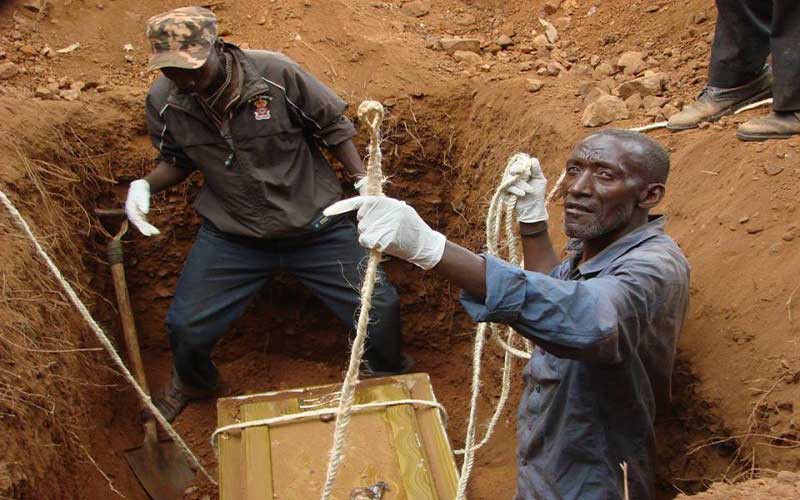
Gravediggers exhume a body initially thought to be of pastor Jonathan Mwania that was mistakenly buried at Katituni village, Machakos county in 2016. After exhumation, elders buried a sheep in line with Kamba traditions. [Philip Muasya, Standard]
The Akamba community believe the spirit of a dead person sneaks back to life through reincarnation. To appease the spirit of the departed, a child is named after the deceased. Woe unto you if you die before marrying. Your body would be buried at the very far end of the compound and elders would insert a red hot metal rod up your rectum to torture and drive away undesirable spirits.